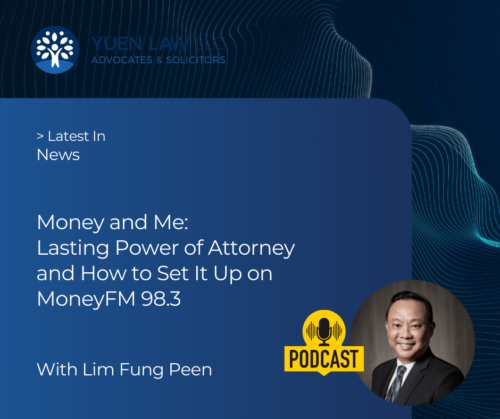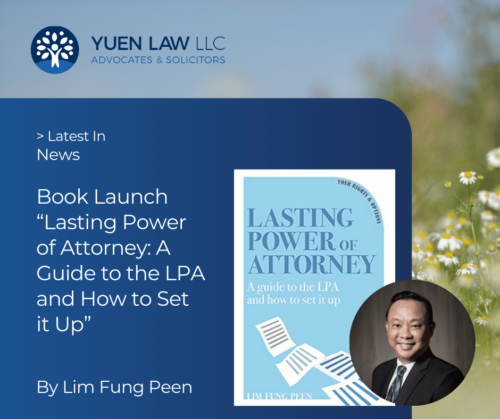If you have not make an LPA and have not appointed a donee at the point in time when you lose your mental capacity, the Mental Capacity Act (“the Act”) allows someone else to apply to the Court such that either the Court will make the specific decisions for you or the Court will appoint one or more persons as your deputy(ies) to make the decisions for you.
With an LPA, you may appoint your donee(s) to make decisions regarding:
- Your personal welfare;
- your property & affairs; or
- both your personal welfare and your property & affairs.
Decisions concerning your personal welfare include your healthcare matters, and other day-to-day activities. Some examples of personal welfare decisions are: where you should live, who you should live with, what activities to take part in, what you wear and eat etc.
Decisions concerning your property & affairs include matters regarding your property and your finances. Some examples of property & affairs decisions are: dealing with the sale, rent or mortgage of your property, managing your bank accounts, investments, tax matters, financial purchases etc.
Parameters for Decision Making
You can set out the parameters of the decision-making powers that you grant to your donee(s). You may give your donee(s) a general LPA which enables your donee(s) to make wide-ranging decisions for you. Alternatively, you may want to restrict the types of decisions that your donee(s) can make and this may require the advice of a lawyer. for instance, you may appoint a donee to make decisions relating only to your property & affairs and this would entail stating in the LPA that the donee is now allowed to make any decision regarding your investments.
What are the kinds of decision that my donee(s) cannot make on my behalf?
In general, your donee(s) may only make a decision on your behalf when you lack the mental capacity to do so. if he or she knows or has reasonable grounds to believe that you have capacity to make the decision, your donee(s) should not make the decision on your behalf and should instead allow you to make the decision for yourself.
Decisions a Donee cannot decide
In addition, the Act provides a list of excluded decisions that your donee(s) cannot make on your behalf as those decisions are considered sensitive and personal. the list is as follows:
(a) Consenting to marriage;
(b) Consenting to touching of a sexual nature;
(c) Consenting to a decree of divorce being granted on the basis of 3 years’ separation;
(d) Consenting to the making of an adoption order;
(e) Adopting or renouncing a religion;
(f) Receiving treatment for change of gender;
(g) Consenting or revoking consent to treatment for sexual sterilization;
(h) Consenting or revoking consent to treatment to terminate pregnancy;
(i) Registering or withdrawing an objection in respect of removal of an organ from you upon your death;
(j) Making or revoking an advance medical directive; and
(k) Making or revoking a gift of a body or any part of the body
With an LPA, will my donee(s) be able to give my property and money away?
When you confer your donee(s) the power to make decisions regarding your property and affairs, it does not mean that your donee(s) will have the power to give your property and finances away by making gifts. Your donee(s) can only make gifts when the LPA expressly authorises the gift. Therefore, you can decide whether to make a gift and set the value of the gift.
In some instances where the LPA did not specify the value of the gift or gifts to be made, your donee(s) may only give a gift of a reasonable value. Your donee(s) must take into consideration the circumstances and size of your estate as well as your best interests before a gift is made.




